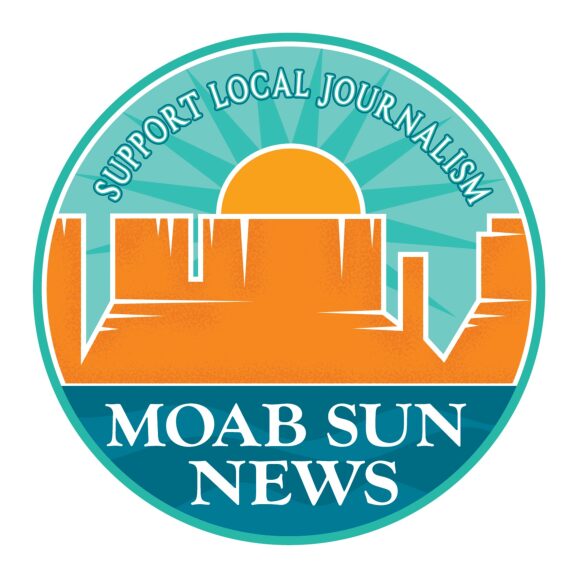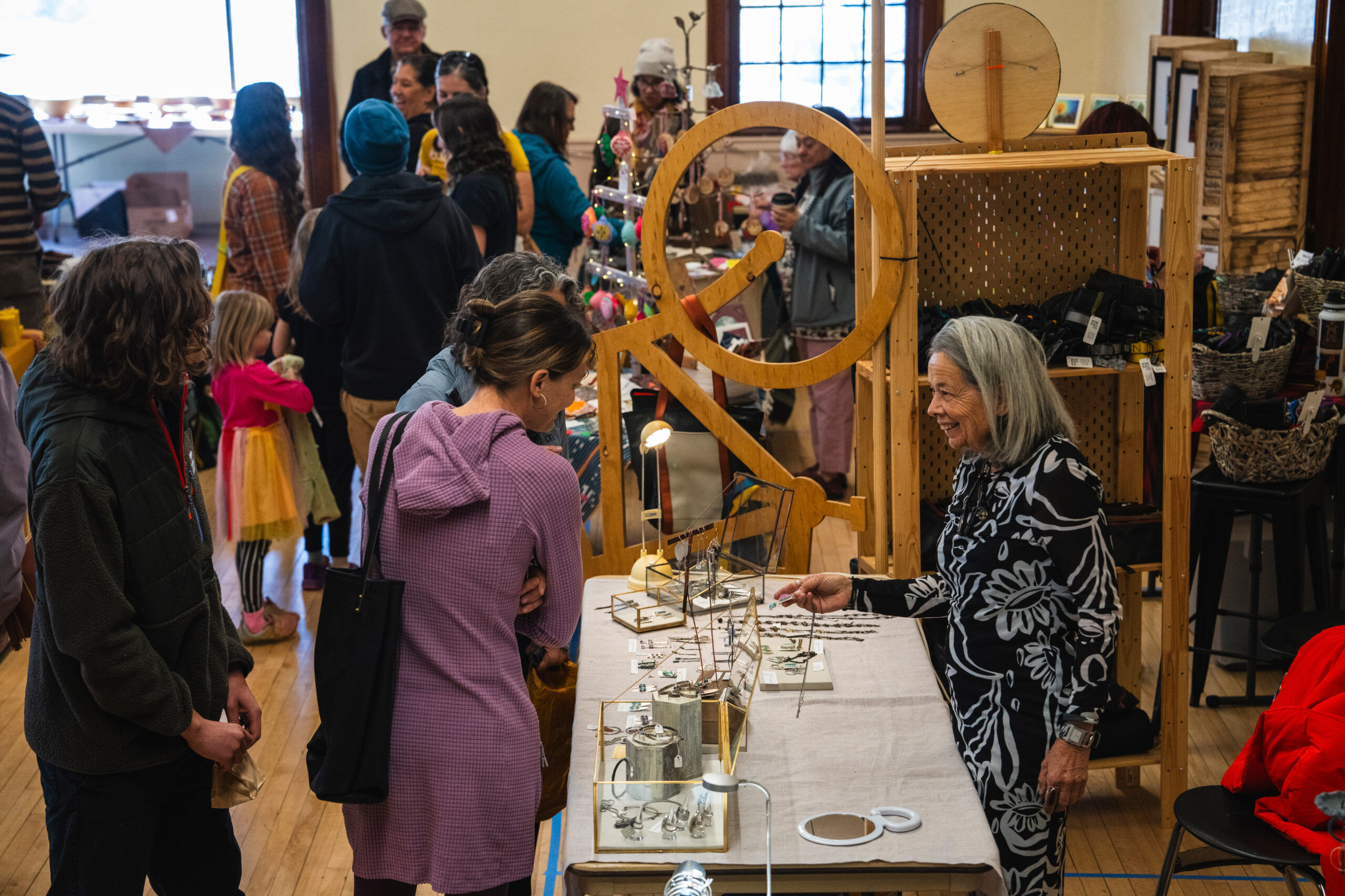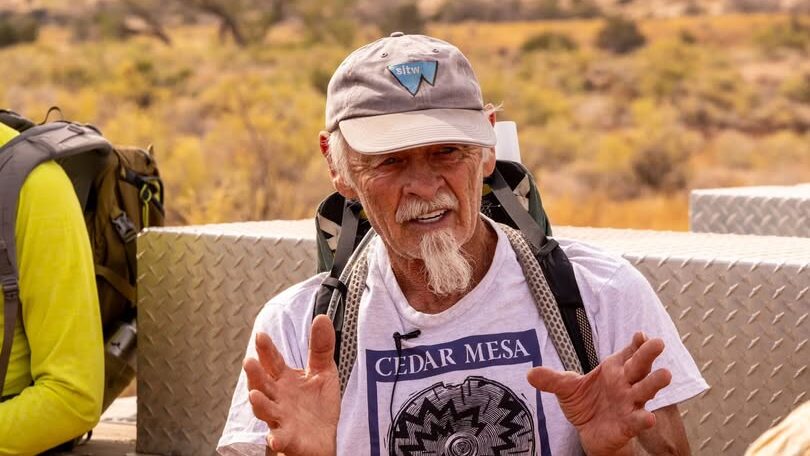Some information may be outdated.
The U.S. creates more waste than anywhere else in the world, with the average American producing nearly 1,800 pounds annually. It’s widely recognized that reducing, reusing, and recycling are key parts of the fight to maintain a healthy planet – and local advocates are hoping to instill the importance of those tactics to young people in Moab.
Moab recycling advocates and education-focused organizations are operating a variety of programs focused on helping local elementary students learn about recycling in fun, accessible ways.
At Helen M. Knight Elementary School, Diane Ackerman makes the trip from Castle Valley once a week to run an after-school “Recycling Rangers” session through the Moab BEACON program. Fourth, fifth and sixth grade students gather every Thursday for a brief lesson or craft project before walking through the whole school to collect classroom recyclables for sorting and separating.
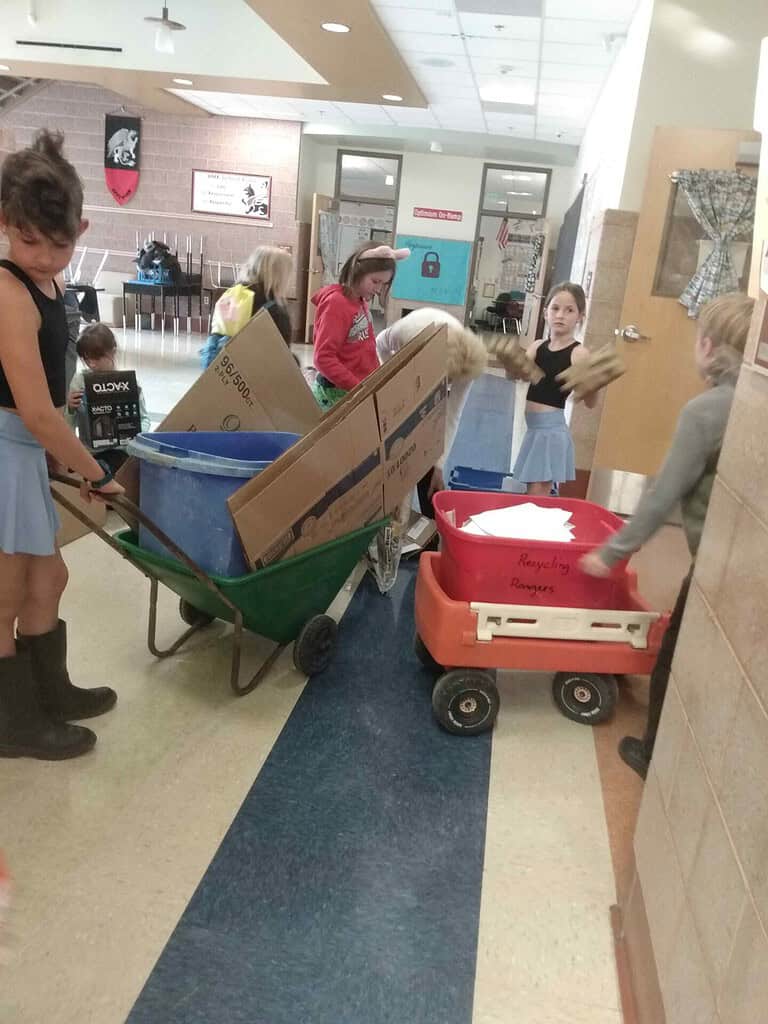
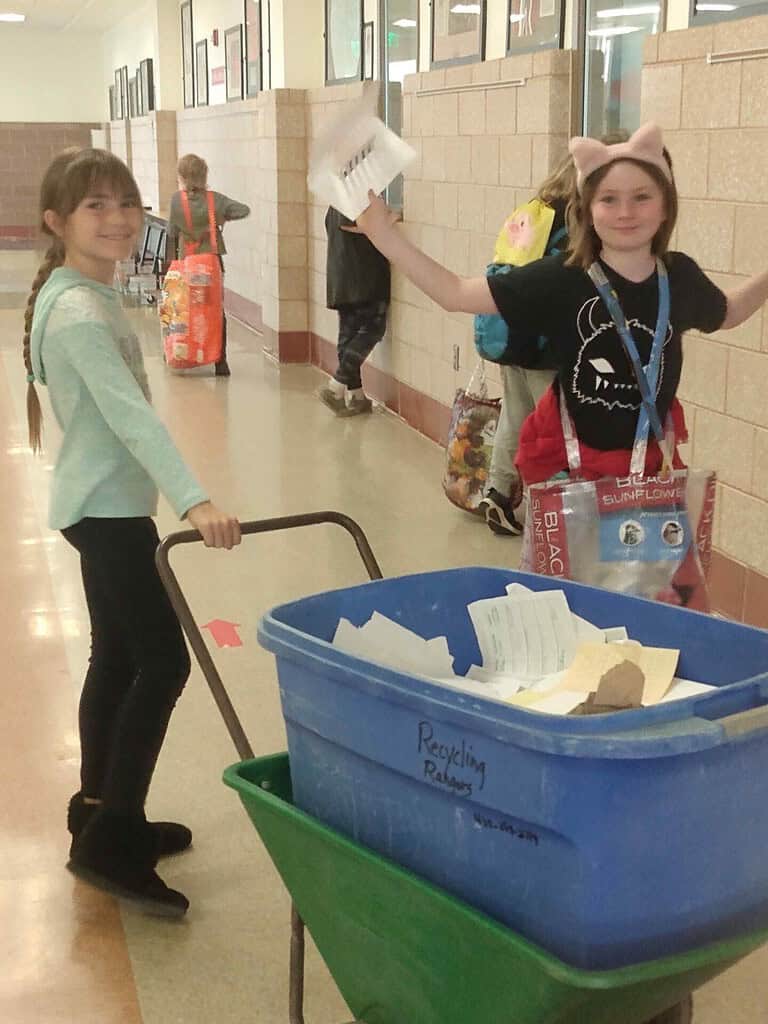
The program is a revival of a former recycling club at the school that had become defunct until Ackerman worked with school officials to start it up again in January.
“I’m just ecstatic about this year,” says Ackerman, who, in coordination with the BEACON Afterschool Program, is in the midst of the second session since the program’s inception. She works with volunteers to make sure the weekly meetings are the perfect blend of education and enjoyment.
“Right away, I learned that you have to have some fun. Having fun while learning is key, right?” she says. “The kids love to do any kind of crafts.”
Paper is by far the largest category recycled from the school, and Ackerman works hard to show the kids new uses for it. In one session, the group made their own recycled paper, and in another, created origami.
“We want to give them a different perspective – there are two sides to a piece of paper, you don’t need to throw it out after only one use!” says Ackerman. She plans to cover food waste through a permaculture approach, helping the kids create their own worm bins with scraps that they’ve already started collecting.
Once the kids have gathered and sorted the recycling, they help Ackerman load it into her car and she takes it to the Moab Community Recycle Center herself.
“It’s a lot of work,” she admits, adding that having a volunteer who lives in town would ease a lot of the burden.
“My ultimate goal would be to create a model that places sustainability at the forefront of everything they do,” says Ackerman. She mentions that food and kitchen waste is one of the largest producers of greenhouse gases.
“Imagine if HMK could explore these principles of reduce, reuse, and recycle in the cafeteria… maybe five or ten years down the road we’ve got a school that’s incorporating some sort of recycling or reuse in every venue of the school, and might even be able to set an example for some of the other schools in the area. What a wonderful thing.”
At Moab Charter School, kindergarten teacher Rosie Boone is hoping their own efforts will make an impression on the students.
Boone originally revamped MCS’s recycling efforts in collaboration with Sara Melnicoff, founder and executive director of Moab Solutions. Zero-waste advocacy and recycling programs are a key part of Moab Solutions’ community-wide services, and Melnicoff was eager to bring that advocacy to local schools.
At MCS, cardboard recycling was the most daunting task, requiring volunteers to break boxes down and haul the material to the Recycle Center.
Together, Melnicoff and Boone spearheaded efforts at the start of this school year to change the MCS dumpster setup, adding trash-only and cardboard-only dumpsters outside, and material-specific recycling bins in the school.
Every classroom now has bins to separate paper from other recyclables, and fifth- and sixth-graders go around once a week to pick them up and place them in the larger bins outside.
“I feel like it’s a really easy way for the kids to make a small difference in their world,” Boone says. “I think it’s really important when they actually make a real connection and know that… if I use this and put it in this bin, it’s going to become something else.”
Boone hopes that in the future the kids can hear directly from local advocates like Melnicoff, and perhaps even visit the recycling center to see where their materials are going.
Melnicoff believes that with the right education, the next generation can improve recycling habits in this country.
“They get it somehow,” Melnicoff says “They just understand. [Recyclable goods] are precious commodities, and you don’t want to treat it like trash… we need to teach our kids the best practices.”
Ackerman agrees. “These kids are so smart, just sharp as a tack… gentle nudging, relentlessly applied, works so good to show people what can be done, it’s just amazing.”
To learn more about recycling in Moab, visit moabrecycles.org, an informational website run by Moab Solutions that lays out the specifics of recycling materials in our town, as well as tips for reducing and reusing in other ways.
Those interested in learning more about or volunteering with HMK’s “Recycling Rangers” program can reach out to dianeackerman13@yahoo.com.
Appreciate the coverage? Help keep local news alive.
Chip in to support the Moab Sun News.


